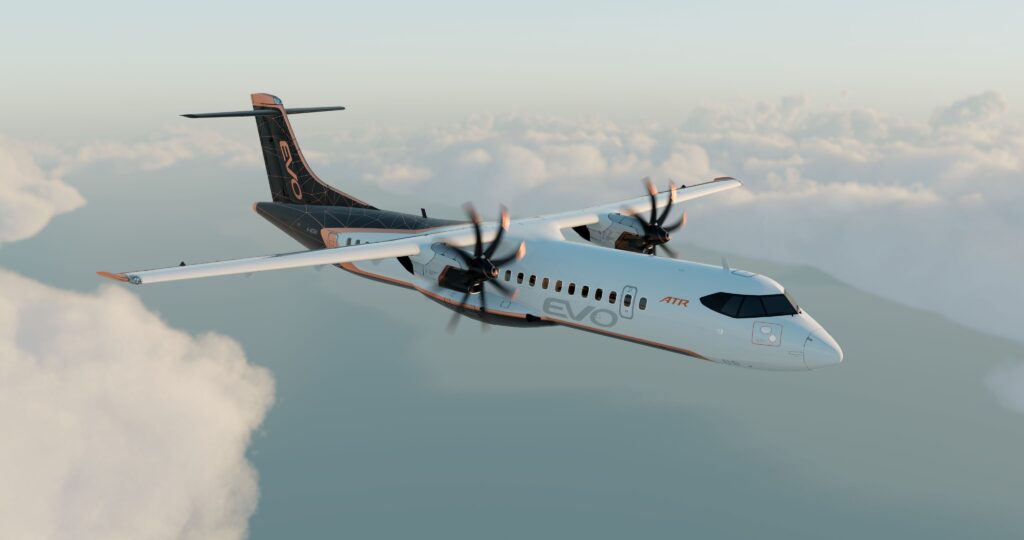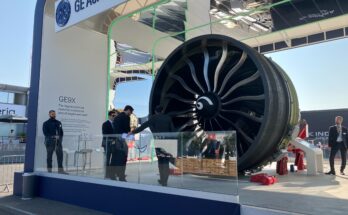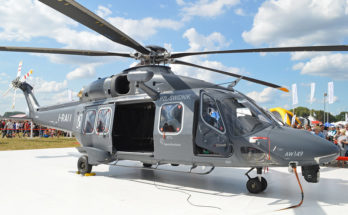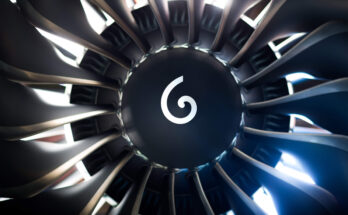
ATR, the turboprop manufacturer co-owned by Airbus and Leonardo, has pushed back its service entry target for its envisioned next-generation, low-emission aircraft, the ATR Evo. Originally slated for a 2030 launch, the Evo’s debut has been pushed back to around 2035 due to challenges in achieving the necessary technology maturity, particularly concerning the development of clean-sheet engines.
ATR originally presented the Evo concept in 2022. It builds upon ATR’s existing turboprop airliner with a hybrid-electric variant powered by all-new engines. ATR had been collaborating with various suppliers to explore technologies capable of delivering a 20-30% reduction in fuel consumption. However, a comprehensive review in 2024, involving engine manufacturers and partners, revealed that developing a completely new engine within the initial timeframe was unrealistic.
ATR has since revised its approach. Instead of relying on an all-new engine, ATR will adapt an existing engine to create a hybrid powerplant to achieve what it expects will be a 20% cut in fuel burn. ATR is collaborating with a single engine manufacturer, as yet unidentified but likely to be Pratt & Whitney Canada, which supplies the ATR’s existing PW127M.
The new schedule aligns with the European Union’s Clean Aviation initiative, which is pushing to introduce a significantly more efficient regional aircraft for service entry around 2035. ATR is considering participating in the second phase of Clean Aviation, which includes flight-test demonstrations of hybrid-electric propulsion for regional aircraft, potentially using an ATR platform.
In the meantime, ATR is working on upgrading the operational efficiency of its existing fleet by extending maintenance intervals and improving component durability.



